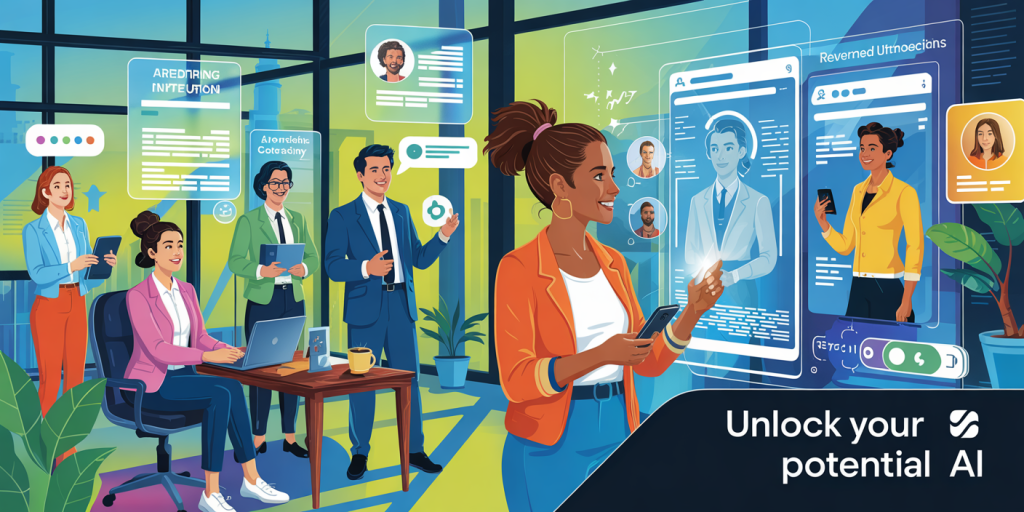How to Stand Out in the Job Market in 2025
As the global job market continues to evolve at a rapid pace, professionals must adapt to remain competitive and desirable to employers. By 2025, technological advancements, shifting economic landscapes, and new workforce expectations will heavily influence hiring practices. Standing out in this dynamic environment requires a strategic approach grounded in acquiring relevant skills, building a personal brand, and leveraging emerging trends.

Understanding the upcoming trends in employment and knowing how to navigate them can significantly improve your chances of securing a desirable position. This article explores practical methods and effective strategies for job seekers aiming to distinguish themselves in the 2025 job market.
The Changing Landscape of Employment in 2025
The job market in 2025 is poised to be markedly different from previous years due to several transformative factors. Automation and artificial intelligence (AI) will reshape job roles, with the World Economic Forum predicting that by 2025, 50% of all employees will need reskilling to keep up with new technologies. This shift will create a demand for professionals adept in both technical and soft skills.
Simultaneously, the rise of hybrid and remote work models has altered recruitment and employee expectations. A 2024 report from Gartner reveals that 70% of companies will maintain hybrid work policies, which means job seekers must showcase adaptability and communication skills in virtual settings. Furthermore, environmental, social, and governance (ESG) criteria are influencing hiring decisions, compelling candidates to demonstrate their alignment with corporate sustainability goals.
Anúncios
For example, Salesforce’s 2023 hiring initiative targeted candidates with expertise in sustainable business practices, showing a growing market segment that rewards socially responsible skills.
Upskilling and Reskilling: Staying Relevant in a Tech-Driven Market
One of the most critical factors to stand out in 2025 is a commitment to continual learning. The acceleration of AI, machine learning, blockchain, and other disruptive technologies means that many traditional skills will become obsolete, but simultaneously, novel opportunities will emerge. According to LinkedIn Learning’s 2024 Workplace Learning Report, professionals who engaged in upskilling were 58% more likely to receive job offers or promotions.
Practical examples include acquiring certifications in cloud computing (AWS, Microsoft Azure) or developing data analysis capabilities using Python or R. For instance, Sarah Johnson, a marketing professional, successfully transitioned from content creation to digital analytics by completing Google’s Data Analytics professional certificate, which led to a 30% salary increase and new job opportunities.
Employers are specifically searching for candidates who demonstrate adaptability through lifelong learning. Job boards now often feature skill-based filters highlighting niche technological competencies alongside particular soft skills like creativity and critical thinking.
Anúncios
| Skill Category | Examples | Demand Growth (2022-2025) |
|---|---|---|
| Technical Skills | AI programming, Cybersecurity | 45% increase |
| Data Analytics | SQL, Python, Data Visualization | 52% increase |
| Soft Skills | Emotional intelligence, Adaptability | 38% increase |
| Sustainability Skills | ESG reporting, Green project management | 40% increase |
This table summarizes projected skill demand growth, emphasizing the importance of a balanced skill set combining technical and interpersonal abilities.

Building a Personal Brand and Online Presence
In 2025, personal branding will be an indispensable tool for job seekers. Recruiters increasingly rely on online platforms such as LinkedIn, GitHub, and personal websites to assess candidates beyond resumes. Research from CareerBuilder reveals that 70% of employers use social media to screen candidates during recruitment.
Creating a consistent, professional digital presence highlights your expertise and personality. For instance, software developers who maintain active GitHub accounts with well-documented projects often secure interviews faster. Like Alex Chen, a junior developer who built an impressive portfolio by contributing to open-source projects online; his digital footprint helped him land a role at a top tech company within months of graduation.
Tips for effective personal branding include regularly sharing industry-relevant content, engaging with thought leaders, and showcasing achievements succinctly. Video introductions or portfolio sites also provide multifaceted insights that traditional resumes lack.
Moreover, networking remains crucial — even virtually. Industry conferences, webinars, and social media groups present opportunities to connect with hiring managers and peers. Active participation in these forums signals enthusiasm and community engagement, qualities highly valued by employers.
Mastering Soft Skills: The Competitive Edge
While technical prowess is vital, soft skills increasingly differentiate candidates in the hiring process. The World Economic Forum’s Future of Jobs Report 2023 emphasizes that skills such as emotional intelligence, creativity, collaboration, and adaptability will rank among the top priorities for employers by 2025.
Case studies demonstrate stark contrasts between candidates possessing only technical expertise versus those who can apply interpersonal skills effectively. For example, a Deloitte study found that 80% of job cancellations or hires failing within the first 18 months were due to poor cultural or team fit rather than lack of technical skills.
Applying these abilities manifests in various ways during job applications and interviews. Effective communication can be seen through clear, concise answers and storytelling methods that highlight problem-solving capabilities. Adaptability can be demonstrated through examples of navigating workplace changes or pursuing unexpected learning opportunities.
Companies like Google and Apple incorporate behavioral and situational interview questions precisely to gauge these traits. Prospective employees can prepare by using frameworks such as STAR (Situation, Task, Action, Result) to articulate experiences that showcase these skills.
Leveraging AI and Technology in Your Job Search
Ironically, AI itself is also a tool for job seekers, not only a disruptor of jobs. In 2025, applicants who utilize AI technologies to optimize resumes, customize cover letters, and prepare for interviews will have an advantage.

Platforms like Jobscan, which use AI to analyze job descriptions and tailor resumes for Applicant Tracking Systems (ATS), help candidates increase their chances of passing automated screenings. Additionally, tools like ChatGPT can assist in drafting personalized correspondence or refining communication, provided users critically evaluate outputs for authenticity.
Employers themselves use AI-driven platforms such as HireVue or Pymetrics to assess candidates’ behavioral traits and cognitive abilities via gamified assessments or video interviews. Being familiar with these technologies allows applicants to practice and demonstrate comfort with digital evaluation methods.
In a practical scenario, Laura Martinez, a recent college graduate, credited her successful placement in a competitive consulting firm to her strategic use of AI resume builders and AI-generated practice interview scenarios. This modern approach saved weeks of preparation time and boosted her confidence.
Preparing for Future Workforce Trends and Opportunities
Looking beyond immediate tactics, it is important to anticipate longer-term changes shaping the workplace post-2025. One prominent trend is the gig economy’s expansion, expected to constitute up to 50% of the global workforce by 2027, according to McKinsey Global Institute. This transformation means workers must build portfolios of diverse experiences, ability to self-manage, and entrepreneurial mindset.
Furthermore, the increasing emphasis on sustainability and social responsibility will create new sectors and roles focused on climate change mitigation, ethical supply chain management, and diversity, equity, and inclusion (DEI) initiatives. Job seekers who proactively acquire relevant credentials or volunteer experience in these areas can differentiate themselves evidently.
Employers will also prioritize mental health and well-being more strongly, integrating supportive policies. Candidates who express awareness and practice of work-life balance strategies will resonate better with forward-thinking companies.
An eye toward automation displacement suggests considering fields less vulnerable to AI replacement, such as creative industries, advanced healthcare, and specialized human services. The infusion of AI tools into routine aspects of many industries offers opportunities for human workers to focus on tasks that require empathy, judgment, and innovation.
—
Standing out in the 2025 job market demands a multifaceted approach that balances continuous technical upskilling, cultivation of soft skills, strong personal branding, and savvy use of technology. By actively adapting to emerging trends and preparing for future shifts, professionals can secure meaningful employment and thrive in a competitive landscape. Embracing lifelong learning and strategic self-presentation will position candidates as resilient, future-ready assets to any organization.
